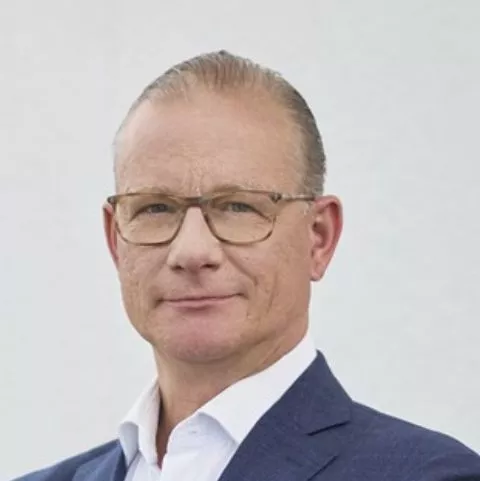- within Government and Public Sector topic(s)
- in United Kingdom
- with readers working within the Banking & Credit industries
Investing in the defence industry
I. Introduction
From today's standpoint within the European defence industry, fresh opportunities are beginning to surface. The United States' geopolitical shift towards the Chinese and Indo-Pacific regions is casting uncertainty on its reliability as a protector of Western Europe. In terms of European policy, this requires a new level of national defence capability for European states. This trend was already apparent during the second Obama administration, for example at the NATO summit in Wales in 2014, and was transparently communicated across the Atlantic during Trump's first term in office.
The undisputed strongest driver, however, is Russia's invasion of Ukraine in 2022 in violation of international law. The severity of this attack is compounded by further threats from Russia towards other independent states (Georgia, Moldova and the entire Baltic region as NATO member states). In Germany in particular, this has led to an epochal reassessment of the current situation known under the catchphrase "Zeitenwende" (turning point). Although this shift has not yet gained sufficient momentum and traction in recent years, the new German government under Chancellor Merz has already expressed its willingness to make further efforts. For the German, as well as the overall European defence industry, this promises extensive modernisation and, above all, rearmament purchases for the national armies.
This is reflected in the large procurement budgets of all national armies now and for at least the next decade: For example, the Austrian armed forces alone plan to spend €17 billion on the "Development Plan 2032+"
(Aufbauplan 2032+).1 Germany is providing a special fund of €100 billion for its armed forces and is also exempting defence spending exceeding 1% of gross domestic product from the constitutional debt brake.2 Finally, the EU Commission intends to mobilise a massive €800 billion for European rearmament, including a €150 billion fund to support member states with loans for investments in the defence sector.3 In addition, broad fiscal measures are underway to ensure sustained increases in defence budgets and to decouple defence budget planning from fixed legislative term limits.
In addition to the exponentially increasing expenditure on security and defence equipment, both the quality and type of available technology are also advancing. In particular, the pace of technological innovation cycles is breathtaking: The industrial supply of the latest technologies is accelerating and improving at an unprecedented rate. The entire field of artificial intelligence, combined with unmanned systems and modern robotics, serves as a prime example. The areas of cyber security and space are proving to be at least as conducive to innovation.
All of this is driving growth in the industry. This growth is being financed through a combination of internal resources, capital market funding and budgetary advances from the German armed forces. Increasingly, it also presents significant opportunities for private investors and venture capital.
II. Investments in the defence industry
For many years, financial investors and venture capitalists were reluctant to invest in the defence or dual-use goods industry. Although many companies are not pure defence contractors and much of their product range
is used in other industries, a focus on defence was often treated as an exclusion criterion. For a long time, there was also a lack of societal acceptance for investments in defence. This persistent investor reluctance has been, and continues to be, largely due to the requirement that investments should and must meet international ESG (Environmental, Social, and Governance) standards for sustainability, in which the defence sector is only partially included.4
This applies equally to traditional financiers and insurers. In practice, it is therefore still often the case that even where there are no explicit restrictions, the internal effort required to secure such an investment through company committees is avoided, or the financing terms are often less attractive as a result. This is all the more significant given the high demand for financing in the industry. Although large advance payments are regularly made to major contractors in classic government contracts, these are not passed on to their suppliers to the same extent. This opens up opportunities, for example, for debt funds and other alternative financiers.
In the USA, a shift in the political balance of power in recent years has already led to greater openness toward investments in the innovative defence industry, as evidenced by the multi-billion dollar valuations of companies such as Anduril and Palantir. Growth opportunities in this sector are also being recognised in Europe and Germany, as demonstrated by examples like Helsing, IsarAerospace, and Quantum Systems. However, there are still only a few investors focused on the defence and dual-use sector. At the same time, investors such as the NATO Innovation Fund and the European Defence Fund or the Deep Tech Defense Innovation Fund, which came out from the Bundeswehrs' Cyber Innovation Hub, are emerging at the state level. Since companies in the defence sector are much more exposed to political uncertainties and (budgetary) political frameworks, investors must consider possible exit strategies from day one. These options are more limited than with investments in purely civilian technology companies.
As in typical M&A projects or financing rounds in the technology sector, investors in the defence sector will need to pay particular attention to the
IT systems, the status of intellectual property rights (including the possible existence of secret patents pursuant to sections 50 ff of the German Patent Act (Patentgesetz – PatG), compliance with the AI Regulation, and the approval and foreign trade law situation. In Germany, there are significant regulatory challenges in these areas.
III. Legal challenges in the German market
Financial investors thus encounter a highly regulated market whose framework they must understand in order to be able to adequately assess the economic potential of target companies. Western countries, including Germany, regulate the arms market and the entire value chain extremely strictly, both with regard to weapons of war and the broad range of other defence goods or dual-use goods.
As a consequence of World War II, the manufacture, transport and marketing of weapons of war are subject to special restrictions and approval requirements (see sentence 1 of Article 26(2) of the German Basic Law (Grundgesetz – GG) and the German War Weapons Control Act (Kriegs-waffenkontrollgesetz – KWKG). The prohibition of stockpiling weapons of war poses an obstacle for investors insofar as products cannot be easily scaled or integrated into international production chains. In this respect, ramping up production capacities also necessitates an expansion of export opportunities once national needs are met.
With regard to other defence equipment, the problems of complex and time-consuming approval procedures are well-known. It must be taken into account that not only exports of goods but also of software and technology, i.e. the specific know-how for manufacturing and use, require approval. Even deliveries to NATO and NATO-equivalent states or to European Community projects cannot be assumed to be reliably feasible from the outset, as the examples of Turkey and Saudi Arabia show.
Once the commercial decision to invest has been made, German investment screening law must be taken into account during transaction planning. It requires notification for acquisitions in the defence sector involv
ing 10% or more of voting rights (see sections 60 ff of the Foreign Trade and Payments Ordinance (Außenwirtschaftsverordnung – AWV). However, certain asset deals and purely foreign transactions affecting German subsidiaries are also covered. It should not be overlooked that direct and indirect investments from other EU countries, as well as those involving suppliers, are also subject to notification requirements. As a result, the pool of future investors who are initially considered unproblematic is very limited. The Federal Ministry for Economic Affairs and Energy (Bundes-ministerium für Wirtschaft und Energie), as the approving authority, examines potential investors and their shareholders in the defence industry with particular scrutiny. The focus is not only on protecting critical information, but also on securing supply chains. In practice, however, strategic investments are reviewed even more critically with regard to essential security interests than purely financial investments.
As part of a "reverse conversion"5, a new trend is emerging: Former civilian manufacturing sites of traditional industries are being transformed into military defence facilities. The existence of production capacities at already established industrial locations, and above all the availability of skilled workers, play a decisive role in this process. Examples include the takeover of Alstom's wagon production in Görlitz by KNDS6, the potential takeover of parts of Volkswagen's production in Osnabrück by Rheinmetall AG7 and the acquisition of employees from Bosch and Continental by Hensoldt AG8.
However, projects of this kind raise significant employment law and security-related questions. In the defence sector, for example, there are special regulatory requirements that affect, among other things, real estate, plant security, IT security and employees. For example, when repurposing a traditional manufacturing site, it must be noted that welding armoured steel according to DIN 2303 requires manufacturer qualification Q39. In addition, TL 2350-0003 applies for the certification of facilities. Questions may also arise during site conversion, such as whether the transition constitutes a transfer of an undertaking under employment law – particularly when entirely new production lines for the defence industry are established – or whether lengthy negotiations with employee representatives will be necessary. Beyond legal requirements, this entails considerable
communication efforts, as it involves not just a change of ownership but also employees working in an industry that can also represent a moral challenge for them.
But also for companies in the defence sector, the new requirements and the scale of projects often make it necessary to introduce additional management levels staffed by suitably experienced executives. This, in turn, requires significant adjustments to the internal organisation of these companies.
IV. Criminal law and security requirements
Due to the nature of the products, the project-based character of procurement and the customer base, robust compliance programmes are essential, as the defence industry worldwide is still considered one of the most corruption-prone sectors. Even in basic sales activities, but especially with respect to contract conclusion, delivery of goods and industrial cooperation (whether within a group, with joint venture partners or with suppliers and affiliated partners), the restrictions of weapons of war control law and export control law must be observed. Violations of these provisions can result in severe penalties. The close collaboration between the defence industry and armed forces imposes heightened requirements for safeguarding official, operational, and business secrets, as well as ensuring integrity in tendering and procurement processes, even without classified information considerations. However, greater procurement flexibility often comes with elevated criminal risks. This unique regulatory environment poses greater challenges in structuring and complying with organisational and monitoring obligations, and maintaining an internal control system in order to avoid the risk of criminal penalties and administrative fines.
V. Conclusion
The growth expectations for the defence industry in Germany mentioned at the outset require capital. However, the specific risks associated with such investments must be carefully considered. In the legal context, these include the following topics: the company's regulatory approval status and
dependency, the robustness of its internal compliance programme, criminal law risks relating to reliability and, finally, potential exit strategies in the light of the Federal Ministry for Economic Affairs and Energy's investment review practice. The more knowledgeable investors are, and the better companies address the specific requirements of investors, the more effectively the opportunities for cooperation can be realised and, ultimately, the greater the strengthening of defence capabilities.
Footnotes
1 https://www.bundesheer.at/aktuelles/2024/ zielbild-oebh2032, accessed 6 June 2025
2 https://dserver.bundestag.de/btd/20/151/2015117.pdf, accessed 6 June 2025
3 https://germany.representation.ec.europa.eu/news/zur-zukunft-der-europaischen-verteidi-gung-weissbuch-und-rearm-europe-2025-03-19_ de, accessed 6 June 2025
4 In Europe, this is mainly due to the uncertainty as to whether such investments qualify as "sustainable investments" within the meaning of the Disclosure Regulation (Regulation (EU) No 2019/2088). Recently, for example, the UK Financial Conduct Authority (FCA) has expressed a positive view that, at least, the FCA sustainability rules do not restrict banks from having clients in the defence sector, see Our position on sustaina-bility regulations and UK defence | FCA. However, the extent to which individual institutions are active in the defence sector in practice depends on the specific case. For example, the "Environmental and Social Risk Management Framework" of the international bank Standard Chartered PLC states in 2.3: "Our approach to the defence sector involves stringent approval requirements with assessments taking place at a client level and transaction level. This includes a number of prohibitions, for example relating to lethal goods [...]" (see Our environmental and social risk framework | Standard Chartered).
5 Rüstung: Wie richtet sich die deutsche Industrie auf Verteidigung aus?, accessed Handelsblatt online 6 June 2025
6 https://www.noerr.com/de/presse/2025_04_14_ alstom, accessed 6 June 2025
7 Rheinmetall CEO visits VW plant as defence companies look to expand | Reuters, accessed 6 June 2025
8 Hensoldt Offers to Take Over Continental, Bosch Workers - Bloomberg, accessed 6 June 2025
9 https://www.bundeswehr.de/resource/blob/132906/9b532a96c4d4ec82d4ac2e-13f85e3e50/schweissen-herstellerqualifikation-data.pdf, accessed 6 June 2025
The content of this article is intended to provide a general guide to the subject matter. Specialist advice should be sought about your specific circumstances.





